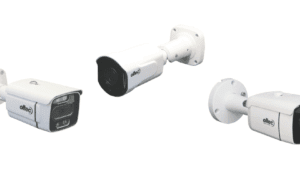A smart city is a place where traditional networks and services become more efficient by integrating digital and telecommunications technologies. Its residents and businesses benefit from this improved efficiency. Developing a smart city that enhances both quality of life and sustainable development requires a combination of new technologies.
Smart cities take advantage of the Internet of Things (IoT) to collect real-time data to understand the demand patterns of consumers and then responding with adequate and more effective solutions. An overall notion of an ecosystem for digital cities is supported by several ICT frameworks that connect a wide variety of devices, appliances, communication gateways, and data centers.
4G, the currently deployed wireless network, was developed mainly to facilitate mobile data services, but there are several areas in which it needs to be improved. Its shortcomings include high power consumption, a limited number of simultaneous connections, and a high cost. With 5G, cities will be able to address and overcome problems related to the IoT and smart cities.
Impact of 5G on Smart Cities
The features of 5G network will greatly enhance digital experiences and promote smart cities. With an increased speed to transfer data, it will also ensure low latency times. You will be allowed to connect to multiple devices at the same time.
In other words, lower latency means sending and receiving signals at a faster rate. Data can be transmitted in real-time using 5G to a range of at least 10 milliseconds and can be delayed as little as 1 millisecond.
Even with thousands of connected devices, you will no experience any delay in the speed or latency. 5G network will therefore offer a higher density of devices.
These features together will revolutionize cities. These days, it’s not unusual for an internet connection to deteriorate in the middle of a crowded vacation spot or stadium. For the first time, 5G will make it possible to connect millions of devices simultaneously over each square kilometer.
Many other devices, outside of personal devices such as smartphones, tablets, smart speakers and PCs, will also be able to collect information and communicate with each other. Quite simply, the focus will be simplicity and utility as far as power consumption is concerned.
Consequently, 5G network eliminates a major obstacle to the development of IoT, which will be able to express its potential in the home, but also in manufacturing processes and public places.
Smart Cities – The Future
Finally, 5G takes smart cities from a theory to reality by making real-world applications such as energy monitoring, traffic enforcement, and smart parking possible.
Smart cities use technology, software solutions, and data to significantly improve several important measures of quality of life. Consequently, there will be a decrease in traffic congestion, a shorten time for emergency response; reduce healthcare expenditures, and a reduction in greenhouse gas emissions, resulting in potential savings.
The IoT presents new business possibilities for companies and individuals that provide software solutions to manage complex IoT ecosystems and extract smart insights from data.



































